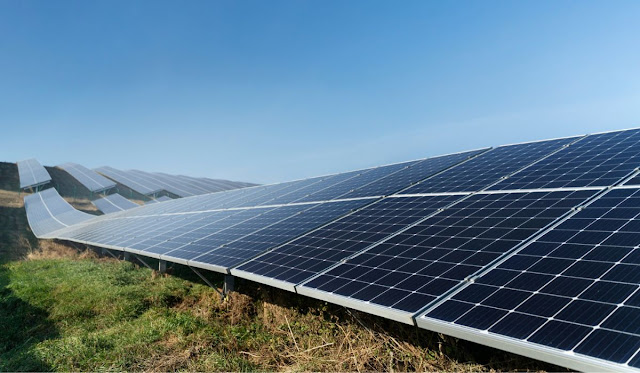Solar installations for warehouses and factories
In 2021, the industry will account for over 41% of India's energy consumption. Compared to this, domestic consumption was 26 percent and commercial consumption was 8 percent.
This energy-intensive industrial sector releases a surprising amount of greenhouse gases into the atmosphere. But in developing countries like ours, industries are the backbone of the economy. Downsizing operations can have a devastating effect.
To balance the two conflicting objectives, on one hand, to sustain the country's growth and on the other, to move towards net zero goals, the Indian government is pushing industries towards renewable energy, especially solar energy.
So, let's discuss how solar energy can benefit the industrial sector and what types of installations consumers can look for to get the most out of the clean energy source.
Why should factories and warehouses go solar?
Cost savings – As industries consume large amounts of energy, their monthly electricity costs are also high. This increases the overall operating cost of the business.
Solar energy, which is cheaper than thermal power, allows businesses to generate their own electricity and make huge savings on monthly bills. Additionally, if the state government allows net metering, the company can also increase its profits by selling excess power back to the grid.
Short Payback Period – Solar energy is a one-time investment. Start-up capital can be easily obtained within 3-4 years of establishment. After the period, a portion of the consumed electricity becomes essentially free.
Green Business – Nowadays, consumers and investors are increasingly attracted to businesses that are environmentally conscious and sustainable in their operations. This is why many carbon-intensive businesses have set net-zero goals and are increasingly investing in renewable energy.
Solar energy, which does not emit greenhouse gases, is not only a great way to reduce an organization's carbon footprint, but also builds a reputation as a green and progressive business.
Reliable solution – Solar power plants have an average lifespan of 25-30 years and require no maintenance other than regular cleaning every 2 weeks. These elements make it a reliable long-term solution that will continue power operation for long periods of time and act as a buffer against power rate hikes.
Tax Benefits – To encourage the shift to renewable energy, the Government of India offers a number of financial incentives to businesses. One of them is the accelerated depreciation benefit, which allows commercial and industrial consumers to depreciate their investment in a solar power plant at a much higher rate (about 40%) than fixed assets.


.jpg)
Comments
Post a Comment